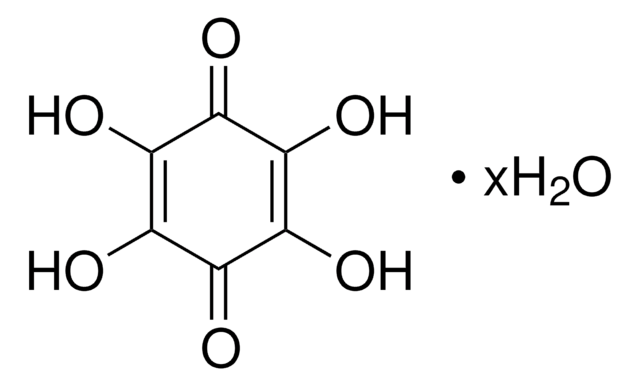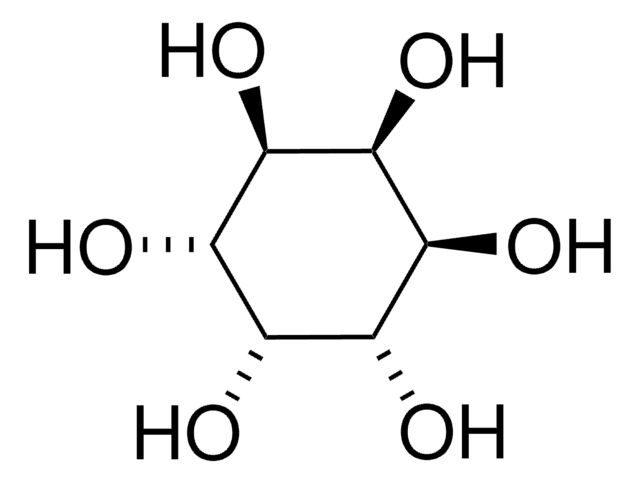128562
Hexaketocyclohexane octahydrate
97%
Synonym(s):
Cyclohexanehexone octahydrate, Triquinoyl octahydrate
About This Item
Recommended Products
Assay
97%
form
powder
mp
99 °C (dec.) (lit.)
storage temp.
2-8°C
SMILES string
[H]O[H].[H]O[H].[H]O[H].[H]O[H].[H]O[H].[H]O[H].[H]O[H].[H]O[H].O=C1C(=O)C(=O)C(=O)C(=O)C1=O
InChI
1S/C6O6.8H2O/c7-1-2(8)4(10)6(12)5(11)3(1)9;;;;;;;;/h;8*1H2
InChI key
MQIMWEBORAIJPP-UHFFFAOYSA-N
General description
Application
Storage Class Code
11 - Combustible Solids
WGK
WGK 3
Flash Point(F)
Not applicable
Flash Point(C)
Not applicable
Certificates of Analysis (COA)
Search for Certificates of Analysis (COA) by entering the products Lot/Batch Number. Lot and Batch Numbers can be found on a product’s label following the words ‘Lot’ or ‘Batch’.
Already Own This Product?
Find documentation for the products that you have recently purchased in the Document Library.
Our team of scientists has experience in all areas of research including Life Science, Material Science, Chemical Synthesis, Chromatography, Analytical and many others.
Contact Technical Service![Dipyrazino[2,3-f:2′,3′-h]quinoxaline-2,3,6,7,10,11-hexacarbonitrile 95% (HPLC)](/deepweb/assets/sigmaaldrich/product/structures/151/558/c0e2c95f-5228-4864-a7a5-4b9765a19840/640/c0e2c95f-5228-4864-a7a5-4b9765a19840.png)







